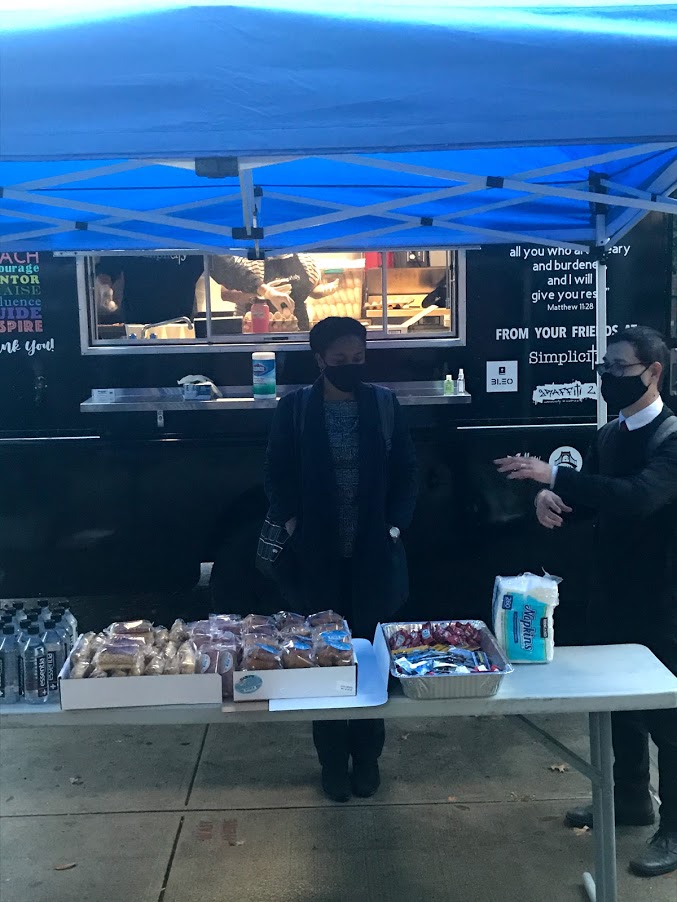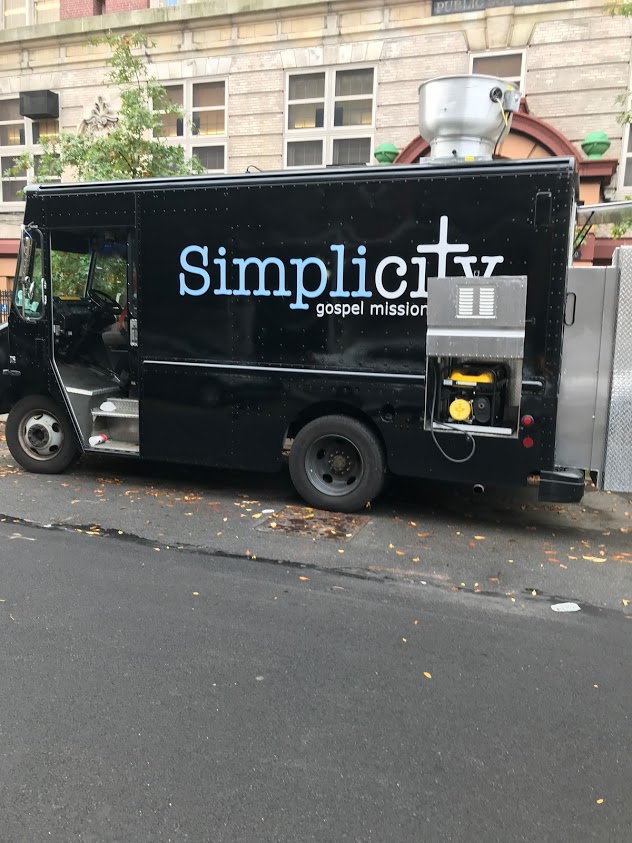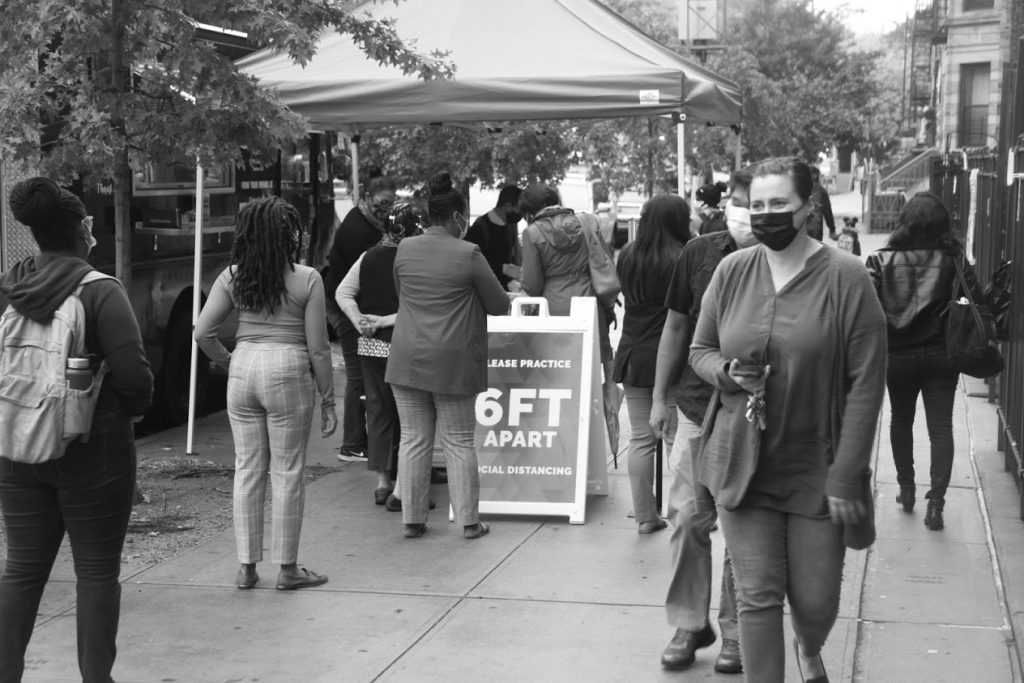- Read part 1: “The Grinding Halt“
- Reda part 3: “Erupting and Adapting“
In the previous edition of The COVID Chronicles, I described how COVID came to NYC and upended our lives. Its impact upon our ministry was dramatic, and in this installment I will recount some of those details.
As a pastor, I tried to pivot as best I could. I checked in on our mission teams that had returned to Mississippi and Texas. Both teams were virus-free. I began writing a daily blog to disciple our church family. The goal was to disciple people in lockdown by providing a daily dose of hope. My first entry was entitled “You Can’t Quarantine Hope.” We worked at improving our online worship services and eventually launched a church book club on Zoom (we read N.T. Wright’s Simply Christian).
Our goal was to inspire people to hope for one more week.
I wasn’t sure how to shepherd people who were scattered across the country. Within two weeks of the virus’ arrival in NYC, we had church members temporarily living in Pennsylvania, Texas, Missouri, Minnesota, and Virginia. Our children’s minister (stuck in Pennsylvania herself) sent care packages to all the families with kids. I mailed out discipleship resources. We called. We texted. We zoomed. We tried to stay engaged with those outside the city, while we grappled with how to do ministry inside the city.
Without a car, and leery of using the germ-filled subway, I was forced to walk everywhere. NYC schools closed on March 16, and our daughter came home for good. We sheltered in place, trying to figure out how a family of 5 (with one on the way) could survive quarantine in a 900 square foot apartment. We knew the kids needed to get out, so we came up with an idea: we’d go to the neighborhood park everyday first thing in the morning. That way, the park would probably be empty, and we could keep our distance from other people. Unfortunately, the City’s playgrounds were closed. So, we ran on the soccer field, played dodge ball on a park ramp, and climbed trees outside the playground. All while being wary of our neighbors.
And yet, we moved to NYC to love our neighbors and to tell them about Jesus. We knew, deep down, that we had to bear witness to Christ, even in this moment. A friend of mine called me to ask if he should shutter his ministry. He runs a non-profit that serves the homeless with free, gourmet meals out of a food truck. We talked on the phone two weeks after COVID arrived in NYC. Providentially, we were both thinking about the same book: Rodney Stark’s Rise of Christianity. We’d both read the book in the past and had independently picked it up again to read about how Christianity thrived during the urban epidemics that rocked the Roman Empire.
We knew we couldn’t shutter our ministries. We had to adapt. We had to serve. We couldn’t simply focus on survival. We couldn’t just protect the sheep. Since my friend ran a food ministry, we decided that he would park the truck, but that we would take the food directly to those in need. With the death toll mounting, many physically vulnerable members of our community did not want to risk going into a grocery store. Others who were healthy suddenly had no income, due to the shutdown.
That first week, with barely any notice, we delivered nine bags of groceries to those in need. We talked to leaders in our community (most of them non-Christians) to find out who needed help. And then we showed up. I remember receiving the groceries on the sidewalk outside of my apartment. I could feel the watching eyes of my neighbors as I took possession of the food. I felt even more excited (and slightly vulnerable) when my friend handed me four N95 facemasks. I knew how valuable these were. I donned one and passed the others to my wife for her and our two eldest children.
I set out with our shopping cart, filled with paper bags of groceries. I walked for a few miles, delivering the items in the rain. The rain began to break the bags apart. Clearly, we’d have to improve our system.
Over the next few weeks, by the grace of God, that’s just what we did. Since our Children’s Minister was still stuck in Pennsylvania, she allowed us to convert her empty apartment into a food pantry. We bought a second refrigerator, and moved it in. We continued to gather names of those who needed food. We sought funding from partners around the country. We mobilized a team of volunteers to purchase, pack, and deliver groceries.
We knew we couldn’t shutter our ministries. We had to adapt. We had to serve.
We had strict protocols. Wear a mask. Wear gloves. Wash your hands. Only a handful of people were allowed to step foot into the apartment. On any given week, nearly 40 boxes would be positioned around the apartment, waiting to receive the groceries. Eventually, our church got a membership at Restaurant Depot, so we could buy in bulk and have it delivered. In 2020, we were now a restaurant.
We filled up two refrigerators every week, so that we could pack and deliver close to 40 “Boxes of Hope.” Our goal with the boxes was to provide a picture of the grace that God lavished on us in Jesus. Therefore, instead of settling for cheap alternatives, we made sure that each box had nearly a week’s worth of groceries. There was always fresh produce (tomatoes, avocadoes, onions), fruit (usually bananas), starches (potatoes and rice) and meat (either frozen chicken or tilapia). Our weekly boxes also included orange juice, soy milk and oftentimes a sweet treat. Every week I’d write a letter to our neighbors. Sometimes we’d provide apologetics resource or evangelistic booklets. Our goal was to inspire people to hope for one more week.
These relief efforts consumed at least half of every week. And yet, they also provided challenges for me at home. Before I am a pastor, I am a husband and father. As an asthmatic, I knew I was taking a risk, but I wanted to limit that risk, for the sake of my family. My four-year old son learned that COVID generally doesn’t hurt children. That is why he volunteered to go out and do the deliveries for me. He told me that he’d rather get sick, and even die, so that I would be ok. I can’t even type this memory without shedding tears.
We struggled to cope as a family. The virus invaded my dreams. Our older kids asked lots of questions about it. We climbed onto the fire escape to squirt each other with water pistols. We were desperate for some outlet for our family during lockdown. My wife cautiously ventured out to the hospital for her pre-natal appointments. She returned somberly from one such appointment having seen two refrigerator trucks parked outside the hospital. The thought of these temporary morgues still sends a shudder down my spine.
In the final installment of The COVID Chronicles, I’ll share how NYC erupted with anger as the virus finally began to abate.







Comments and Pingbacks
2021-01-26 10:09:23
The Grinding Halt | The COVID Chronicles, Part 1 | Intersect
[…] Read part 2: “Loving a City in Lockdown“ […]